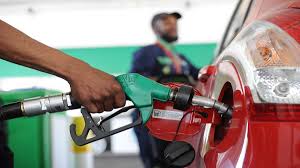Petrol marketers in Lagos have increased pump prices to between N925 and N935 per litre over the weekend, driven by rising import costs, supply constraints, and foreign exchange challenges. Read more on The Nation.
This hike follows a surge in the landing cost of petrol, which climbed to N843.28 per litre last Monday, up from N797 per litre two weeks earlier—an increase of N46 per litre. Major stations like TotalEnergies and MRS now sell at N935 and N925 per litre, respectively.
Key Factors Behind the Price Increase
- Dangote Refinery Halts Naira Sales – The refinery recently stopped selling petrol in naira, tightening local supply.
- Delayed Naira-for-Crude Negotiations – The government’s proposed crude oil exchange policy remains unresolved, worsening forex scarcity.
- Global Market Trends – The shift from winter to summer-grade petrol in Europe has pushed international prices higher.
- Supply Disruptions – Refinery maintenance in Europe and a recent fire at Italy’s Falconara refinery have reduced fuel shipments.
- Low Stock Levels – The Amsterdam-Rotterdam-Antwerp (ARA) hub, a major global oil trading center, has seen inventories drop to a 12-week low, further straining supply.
Also read: I Never Said That – Seyi Tinubu Denies Claim About His Father’s Eight-Year Presidency
How Landing Costs Are Calculated
The Major Energy Marketers Association of Nigeria (MEMAN) explains that petrol landing costs in Apapa depend on:
- Exchange rate fluctuations
- Finance charges (32% per annum for 30 days)
- Ship-to-ship (STS) transfer fees
- Regulatory fees (NIMASA, NMDPRA, NPA, VAT, etc.)
MEMAN suggests that cost savings can be achieved through better forex access, logistics optimization, and eliminating unnecessary STS transfers.
With global oil prices volatile and local forex challenges unresolved, petrol costs may continue fluctuating. Experts warn that without policy adjustments, Nigerians could face further price hikes in the coming weeks.



